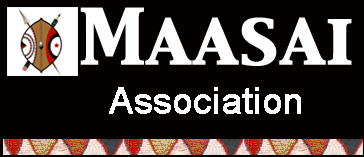Photographers
are invading our culture
The
Maasai people are among the indigenous people hunted by photographers,
who found free access into a land filled with exoticism, wildlife
and tribal people, where the law to protect indigenous people
remains scarce.
Some
western photographers are stepping over boundaries; they are
not being sensitive to our culture and way of life. They are
invading and exploiting our people and culture for profit purposes.
Here
are some questions to ask yourself, when looking at a portrait
book with Maasai images:
Who
is this person in the picture? What is her name? How does she
feel being in a portrait book? Does she know that her picture
is being sold in the western world? Did she receive anything
in return? Has the photographer obtain a letter of consent from
this person or from the community?
Now
look at a portrait book, or magazine, with images of western
people. Repeat the same questions stated above.
It
seems that a wild animal is given a better recognition than
a Maasai person.
When
you visit a zoo, for example, you’ll find that every animal,
whether a lion, giraffe, gorilla, zebra, hippo, etc., has a
name. If you talk to the keeper s/he will present that animal
to you by its name. Why can't a photographer name a Maasai if
s/he can name a wild animal? A Maasai is not less of a
human being.
We
have discovered disturbing images of our people in the western
world
Recently,
we came across images of a circumcision event, a sacred rite
of passage that is not intended for the public. This discovery
was shocking, sad, and disappointing to us, as this is a personal
and sacred rite of passage that should have not been photographed,
published, and sold to the public.
The
photographers must stop invading the privacy of the Maasai people,
community, and culture. There are other ways to take images
of the people without humiliating, invading, and exploiting
the culture. Photographers can make profits without disrespecting
the culture. On the other hand, the reader/viewer can learn
about Maasai culture without supporting a disrespectful photographer.
The reader has the power to change this behavior of a misbehaving
photographer.
We
are different from wild animals and are not running naked like
monkeys, as the photographers depicted us. Each Maasai person
has a name and disserves a respectful recognition and representation
just as a westerner would do.
We
are appealing for assistance from people from all walks of life
to help us protect Maasai culture from disrespectful photographers.
How
you can help?
•
Do not buy books with nude images of indigenous people
•
Encourage your bookseller to buy books that are culturally sensitive
to indigenous cultures
•
Let the bookseller and photographer know that you care about
the source where images came from
•
Ask the photographer to show names of the persons s/he photographed
•
Ask the photographer to respect the privacy of the individual,
community, and culture
•
Ask the photographer to respect the customs of indigenous people
•
Write to the photographer and encourage her/him to give something
back to the community in which s/he photographed
We
are confident that your voice can make a difference.
It
is important to make clear that we are not opposed to ordinary
and respectful photographers. A tourist, for example, is free
to take family pictures, as s/he wish, so long as s/he has obtained
a consent from the individual.
Also,
we are not opposed to learners who wish to understand the Maasai
culture. In fact, we are glad to learn that people from all
corners of the world are willing to learn about our culture.
What
we are opposed to is commercial photography obtained without
consent.
We
have a problem when our culture is inaccurately and irrespectively
documented and represented. We are not animalistic, and we do
not run around without clothes. This is not how we live and
see ourselves.
We
respect other cultures and their way of life. As such, we expect
the outside world to respect us. What might be accepted in your
culture, might not be accepted in our culture. Cultural boundaries
must be obeyed. Our culture must be represented in a respectful
manner.
How
do photographers raid Maasai Images?
In
many cases the photographers come in to the Maasai region accompanied
by corrupt persons, officials, drivers, and tour guides, who
collect bribes from the photographers.
Upon
their arrival to our community, we often welcome them with open
arms, and offer them our best hospitality and accommodation.
At
the end of his/ her visit, the photographer would turn around
and spear us from the back and exploit our kindness.
It
is unfortunate to see photographers misusing our noble generosity.

